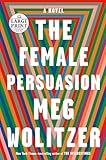 With the publication of her 11th novel, Meg Wolitzer is poised to garner a level of critical attention most novelists only dream of. It feels like a long time coming, too (“Finally,” reads the parenthetical headline of her New York Times author profile). The Female Persuasion is hefty, and its subjects—which range from on-campus sexual harassment to the feminist movement to female mentorship—feel so of-the-moment that it’s easy to forget Wolitzer has been writing sprawling, ambitious books for her entire career.
With the publication of her 11th novel, Meg Wolitzer is poised to garner a level of critical attention most novelists only dream of. It feels like a long time coming, too (“Finally,” reads the parenthetical headline of her New York Times author profile). The Female Persuasion is hefty, and its subjects—which range from on-campus sexual harassment to the feminist movement to female mentorship—feel so of-the-moment that it’s easy to forget Wolitzer has been writing sprawling, ambitious books for her entire career.

 In 2013, the critic Britt Peterson noted how Wolitzer, along with novelist Claire Messud, tackles novels of female ambition without shying away from ugly truths. “[Their] heroines fail and have to figure out how they feel about that—with some new, and slightly uncomfortable twists,” Peterson writes in The New Republic. It’s this tendency that makes Meg Wolitzer one of America’s great realist chroniclers of upwardly mobile Jewish women, whether they’re struggling in unfulfilling office day jobs, like Jules Jacobson in The Interestings, or trying to break through the comedy glass ceiling, like Dottie Engels in This Is My Life (brought to screen by the late, great Nora Ephron in 1997). New readers might see The Female Persuasion and think, “At last!” But Wolitzer has been there all along, and her backlist is worth another look.
In 2013, the critic Britt Peterson noted how Wolitzer, along with novelist Claire Messud, tackles novels of female ambition without shying away from ugly truths. “[Their] heroines fail and have to figure out how they feel about that—with some new, and slightly uncomfortable twists,” Peterson writes in The New Republic. It’s this tendency that makes Meg Wolitzer one of America’s great realist chroniclers of upwardly mobile Jewish women, whether they’re struggling in unfulfilling office day jobs, like Jules Jacobson in The Interestings, or trying to break through the comedy glass ceiling, like Dottie Engels in This Is My Life (brought to screen by the late, great Nora Ephron in 1997). New readers might see The Female Persuasion and think, “At last!” But Wolitzer has been there all along, and her backlist is worth another look.
So grab your beach blanket and promotional publisher’s tote—I know you have one—and get ready to spend the summer with Meg Wolitzer’s angry, hilarious, wry, and wily women.
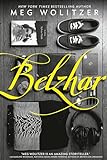 Belzhar (2014): Written for teens, Belzhar is an interesting departure for Wolitzer. The low-key depression that can settle on her world-weary adult characters takes on sharper relief in Jam Gallahue, a teenager struggling with grief after losing her boyfriend, Reeve. Concerned for her safety, Jam’s parents send her to the Wooden Barn, a Vermont boarding school for troubled teens, to recover. While studying The Bell Jar (of course!), Jam discovers that keeping her own journal helps her access another world: one where Reeve is alive. But which world will Jam choose?
Belzhar (2014): Written for teens, Belzhar is an interesting departure for Wolitzer. The low-key depression that can settle on her world-weary adult characters takes on sharper relief in Jam Gallahue, a teenager struggling with grief after losing her boyfriend, Reeve. Concerned for her safety, Jam’s parents send her to the Wooden Barn, a Vermont boarding school for troubled teens, to recover. While studying The Bell Jar (of course!), Jam discovers that keeping her own journal helps her access another world: one where Reeve is alive. But which world will Jam choose?
 The Interestings (2013): Wolitzer’s last novel for adults, about a group of creative strivers who meet at a summer camp upstate in the ’70s, contains all her favorite themes writ large: friendship, ambition, gender politics. There’s Jules, a failed actress turned beleaguered therapist; Ash, a playwright and social activist with a troubled brother; and Ethan, a cartoonist whose Simpsons-level success makes him all kinds of rich. Class difference is the major bugaboo here, and while the opening chapters capture the electric feeling of young people discovering their passions, the book also veers off to explore what I fondly think of as “rich people problems.” Ash’s brother skips out on his trial for sexual assault and holes up in Iceland with a former camp counselor, leaving the gang to decide when—and how—they handle the (very illegal) secret.
The Interestings (2013): Wolitzer’s last novel for adults, about a group of creative strivers who meet at a summer camp upstate in the ’70s, contains all her favorite themes writ large: friendship, ambition, gender politics. There’s Jules, a failed actress turned beleaguered therapist; Ash, a playwright and social activist with a troubled brother; and Ethan, a cartoonist whose Simpsons-level success makes him all kinds of rich. Class difference is the major bugaboo here, and while the opening chapters capture the electric feeling of young people discovering their passions, the book also veers off to explore what I fondly think of as “rich people problems.” Ash’s brother skips out on his trial for sexual assault and holes up in Iceland with a former camp counselor, leaving the gang to decide when—and how—they handle the (very illegal) secret.
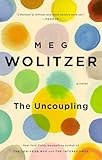
 The Uncoupling (2011): If despairing Twitter jokes about not wanting to date hetero men right now are up your alley, let me introduce you to four women in suburban New Jersey who lose all desire to have sex with their husbands and lovers. Is it the high school production of Lysistrata, or is something bigger and more complicated at work? Middle-age desire, marriages good and bad, and the pleasures and perils of nonmonogamy all get their moment in the spotlight.
The Uncoupling (2011): If despairing Twitter jokes about not wanting to date hetero men right now are up your alley, let me introduce you to four women in suburban New Jersey who lose all desire to have sex with their husbands and lovers. Is it the high school production of Lysistrata, or is something bigger and more complicated at work? Middle-age desire, marriages good and bad, and the pleasures and perils of nonmonogamy all get their moment in the spotlight.
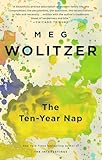 The Ten-Year Nap (2008): What would you do if, after deciding to stay home to raise your children, you suddenly realized you wanted your old life—your career, your freedom—back? That’s the question at the heart of this wry examination of marriage, family, and ambition, and it hardly feels out of place 10 years later.
The Ten-Year Nap (2008): What would you do if, after deciding to stay home to raise your children, you suddenly realized you wanted your old life—your career, your freedom—back? That’s the question at the heart of this wry examination of marriage, family, and ambition, and it hardly feels out of place 10 years later.  There’s a rash of mothering memoirs hitting in the shelves in 2018, from Meaghan O’Connell’s And Now We Have Everything to Sheila Heti’s Motherhood, and I can’t help thinking of all those alarm clocks ringing out across Manhattan in the novel’s opening scene, asking each of Wolitzer’s women what kind of lives they want to waken into.
There’s a rash of mothering memoirs hitting in the shelves in 2018, from Meaghan O’Connell’s And Now We Have Everything to Sheila Heti’s Motherhood, and I can’t help thinking of all those alarm clocks ringing out across Manhattan in the novel’s opening scene, asking each of Wolitzer’s women what kind of lives they want to waken into.
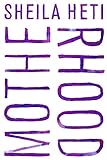
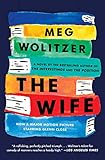 The Wife (2003): “Though I’m now sixty-four years old and mostly as invisible to men as a swirl of dust motes, I used to be a slender, big-titted blond girl with a certain shyness that drew Joe toward me like a hypnotized chicken,” confides Joan Castleman, the shrewd narrator of Wolitzer’s sixth novel. As Joan’s marriage to her husband (and former professor!) falls apart, she tells their love story with razor-sharp humor and pathos. Perhaps most poignant is Joan’s anger and grief about all that she has missed out on shepherding Joe’s career as a writer—when she could have been shepherding her own.
The Wife (2003): “Though I’m now sixty-four years old and mostly as invisible to men as a swirl of dust motes, I used to be a slender, big-titted blond girl with a certain shyness that drew Joe toward me like a hypnotized chicken,” confides Joan Castleman, the shrewd narrator of Wolitzer’s sixth novel. As Joan’s marriage to her husband (and former professor!) falls apart, she tells their love story with razor-sharp humor and pathos. Perhaps most poignant is Joan’s anger and grief about all that she has missed out on shepherding Joe’s career as a writer—when she could have been shepherding her own.
Image: Flickr/Mauricio Sepulveda









